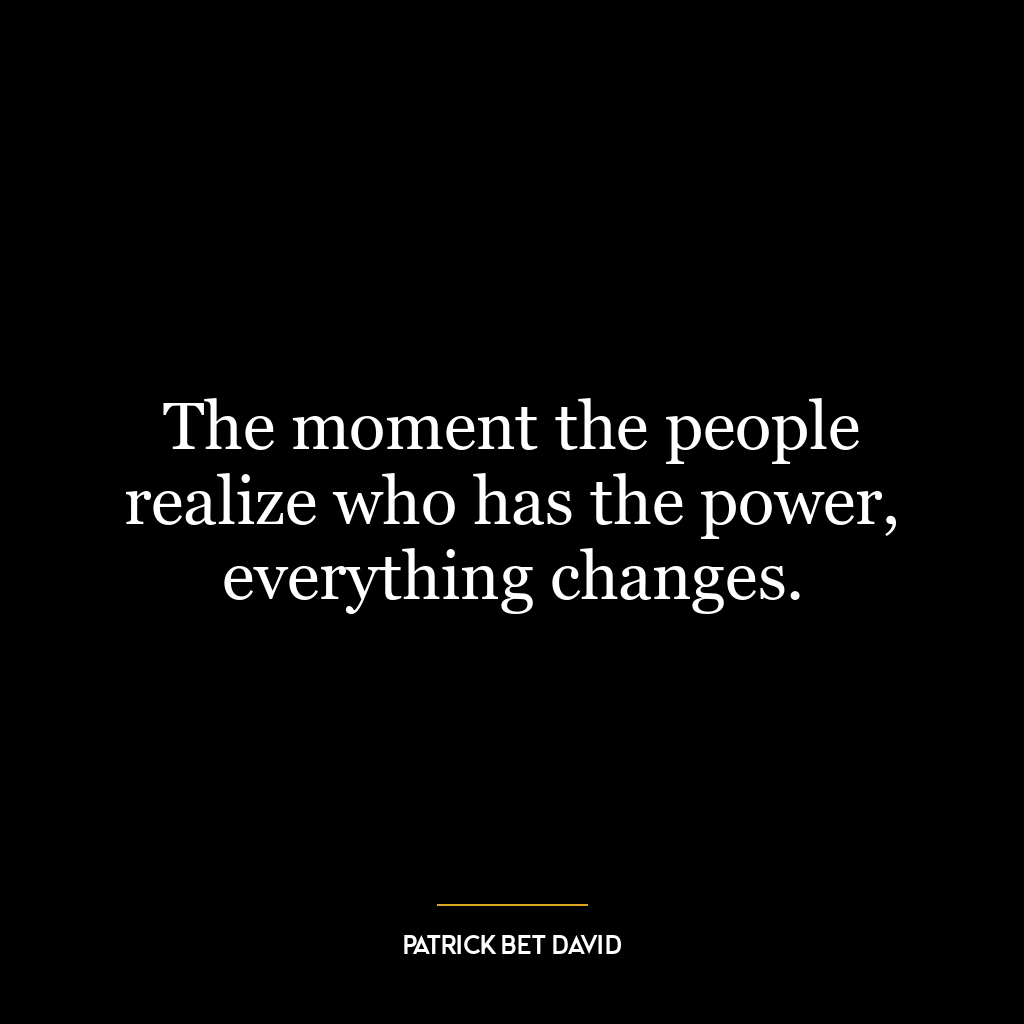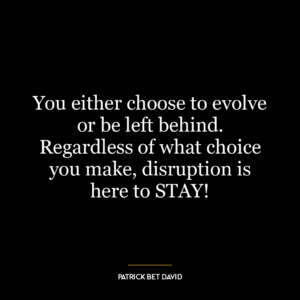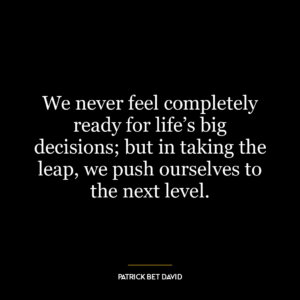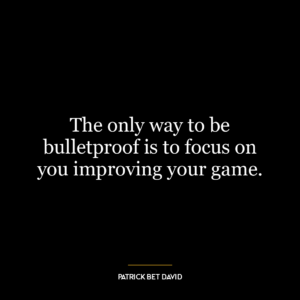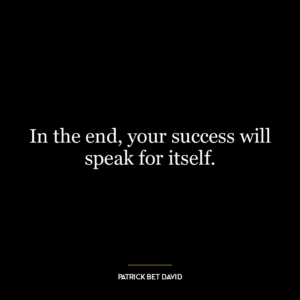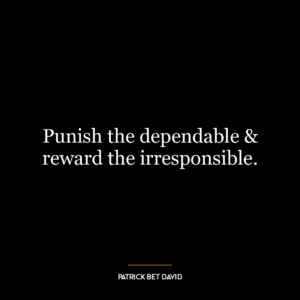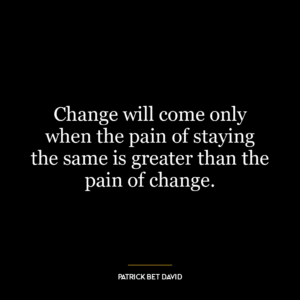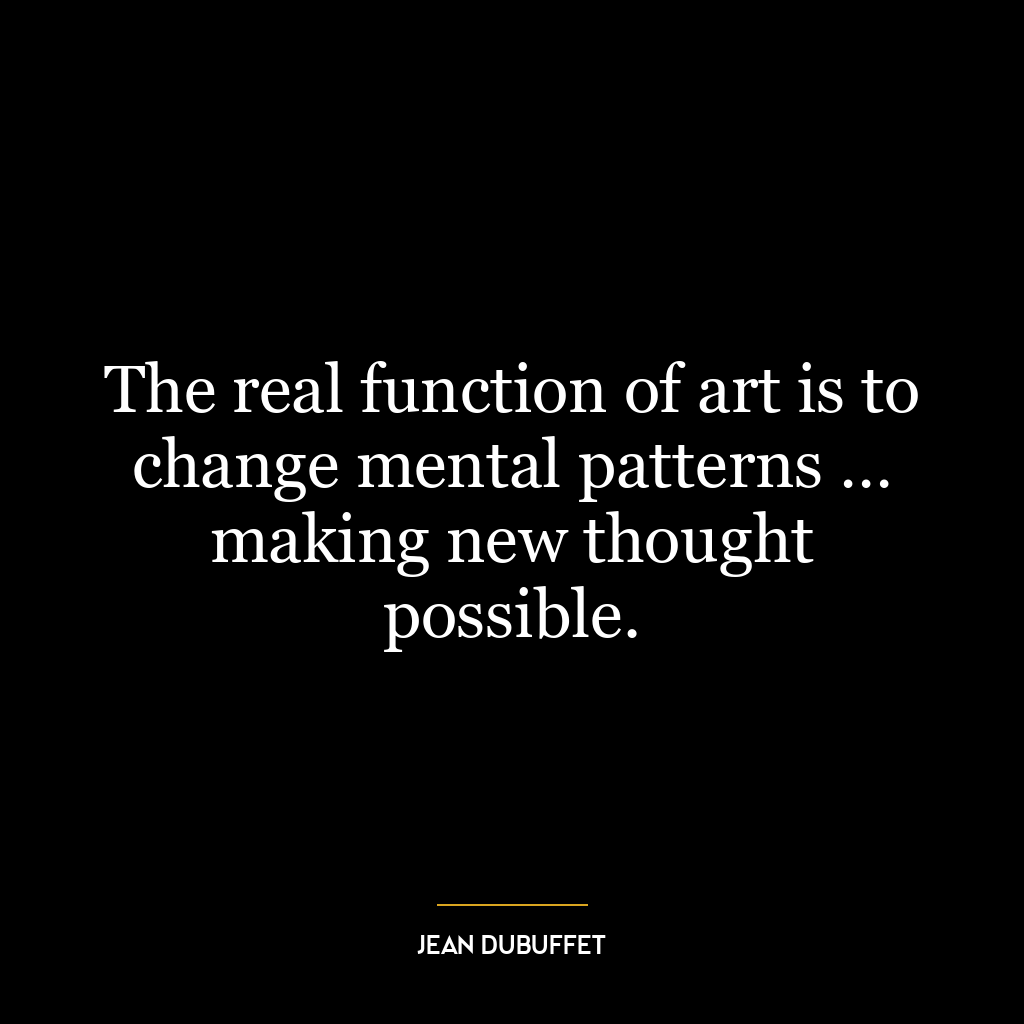The moment the people realize who has the power, everything changes.
This quote is a profound reflection on the dynamics of power and change. It suggests that power resides not with those who appear to hold it, but with the masses who grant it. The moment when people realize that they are the true source of power, significant shifts can occur. This realization can lead to transformational changes in society, as it often serves as a catalyst for social, political, or economic reform.
The quote also underscores the importance of awareness and enlightenment. It implies that ignorance or lack of understanding can keep people subjugated, while knowledge and realization can liberate them and drive change.
In the context of personal development, this quote can be interpreted as a call for self-empowerment. It encourages individuals to recognize their own potential and capabilities. Once a person realizes their inherent power, they can take control of their life, make conscious decisions, and effect personal change. It’s about understanding that the power to change one’s circumstances lies within oneself, not with external forces.
Applying this idea to today’s world, we can see its relevance in various social movements where the collective power of individuals has led to significant changes. For instance, movements for racial equality, gender rights, and environmental protection have all been driven by the realization of collective power. Similarly, in the digital age, consumers have realized their collective power to influence corporate policies and practices, leading to more ethical and sustainable business practices.
In conclusion, this quote emphasizes the importance of recognizing one’s power and the transformative potential that this realization can unleash. Whether on a personal level or in a broader societal context, the awareness of one’s power can be a potent catalyst for change.

